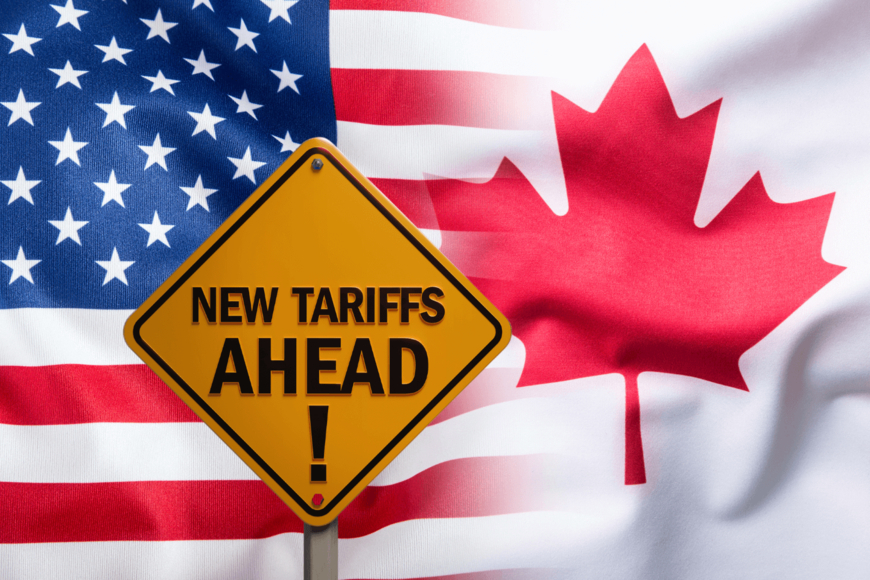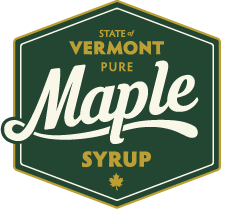Vermont-Canada Trade Relations & Tariffs

Cross-Border Trade Relations & Tariffs
Over the past 20 years, Vermont maple syrup production has grown by an impressive 465%. Even with this kind of growth, Vermont and domestic production alone is not sufficient to meet U.S. demand. As a result, roughly 60% of Canada’s maple exports come to the U.S., where bulk buyers blend Canadian and US or Vermont syrup to supply major retailers such as Whole Foods, Target, Wegmans, and Costco. The entire industry across the US and Canada has created a collaborative partnership, through direct relationships and trade associations that benefit producers and stakeholders on both sides of the border.
The tariffs will directly impact U.S. producers, as approximately 73% of the U.S. maple syrup crop (and up to 85% of the Vermont crop) is sold in bulk. Bulk buyers operate on tight margins, where even small price increases can determine whether a contract is won or lost. Higher costs will ultimately erode the competitiveness of pure U.S. maple syrup, reducing its share in the broader sweetener and table syrup market. The loss of retail shelf space would slow, if not reverse, the strong growth trends the industry has achieved in recent years.
Given that most of the world’s maple syrup is produced in Canada, most of the specialized equipment and other supplies used in maple production is also manufactured there and imported into the US. The major four manufacturers also have storefronts in Vermont and dealers across the country. While producers may have most of the equipment they need for the upcoming 2025 season, tariffs on equipment will drive up costs in 2026 and beyond, making expansion more difficult and creating barriers for new entrants. At a time when U.S. agricultural and forestry input costs are already rising, an additional 25% tariff would add further strain, potentially forcing producers out of the industry and stalling its continued growth.
Rather than supporting U.S. and Vermont maple producers, these tariffs have the capacity to disrupt trade, limit access to essential supplies, and contribute to inflationary pressures for consumers. A free and open trade relationship with Canada is essential to maintaining a stable, sustainable, and growing maple syrup market.
The overall health of the industry relies on a collaborative interdependence of the supply chain on both sides of the border, with most maple equipment and supplies imported from Canada. The additional costs imposed by the tariffs will lead to higher prices, reduced availability, and potential market disruptions that could hinder the growth of this important agricultural sector. This is at a time when input costs for producers are already high and the retail price is relatively stable, so they’re already working with small margins.
We have asked our national leaders to work toward a solution that fosters trade and supports the long-standing agricultural relationship between our two countries. We support creating a more equitable and prosperous environment for maple syrup producers on both sides of the border.
Recent VMSMA news coverage:
- Vermont Maple Advocates in DC: Allison Hope, VMSMA’s Executive Director, joined Senator Peter Welch in Washington DC on March 4th to speak at a national press conference about the effects of tariffs on the Vermont maple industry and attend the Presidential address to the joint session of Congress. Video of the press conference on C-SPAN
- VMSMA collaborated with other U.S. maple producing states to send a letter to US Agriculture Secretary Brooke Rollins with feedback on the proposed Canadian tariffs. Read the letter online here.
- On March 18th, VMSMA participated in a tariff roundtable with Senator Welch and the Honorable Marie-Claude Bibeau, a Canadian member of Parliament for Compton-Stanstead (having previously served as a Minister of Agriculture and Agri-Food and as a Minister of International Development). Sugar maker Donna Young also participated in the round table. News coverage of the round table from Global News in Canada and from WCAX, as well as the Associated Press.
- Global News followed up the March 18th roundtable with a visit to Judd’s Wayeeses Farms in West Charleston, talking to Donna Young and Jim Judd about their operation.
- Most recently on March 25th, a reporter from CBC National News in Canada, joined Allison at Judd’s Wayeeses Farms to talk to Jim and Donna about their operation and the impacts of tariffs.
Maple producers & partners responding to tariffs:
- Shelburne News with Steve Palmer and others regarding tariffs and increasing costs (March 13, 2025)
- Rutland Herald with Reid Richardson and Jacob Powsner regarding tariffs and increasing costs (March 5, 2025)
- WCAX with Mark Isselhardt on tariffs (March 3, 2025)





